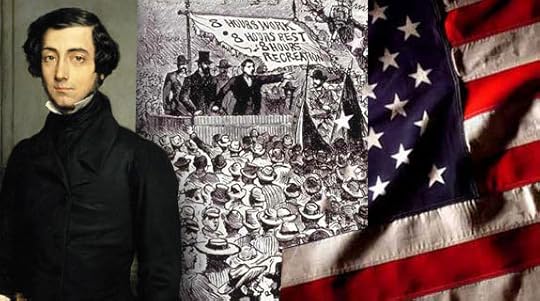An Undemocratic Future?

An Undemocratic Future? | James Kalb | Catholic World Report
A review of After Tocqueville by Chilton Williamson
Democracy
means “rule by the people,” but today that seems an increasingly distant ideal.
We live in a diverse country of 310 million people with a government
responsible for a huge range of domestic and foreign concerns. Even full-time
professionals have trouble keeping track of what’s going on. In such a
situation, how can ordinary people exercise much control over public affairs?
But if
democracy can’t really be rule by the people, at least not under present
conditions, what is it? Nobody seems to know, and if someone does no one else
agrees with him. With that problem in mind, Chilton Williamson has written a
book that explores at length the ambiguities, contradictions, and doubtful
prospects of whatever it is that we call democracy.
After Tocqueville: The Promise and Failure
of Democracy (ISI, 2012) is extraordinarily wide-ranging. It starts
with a long bicycle tour of France by a young British historian, which leads to
a discussion of whether the centralized and officially egalitarian France of
today is freer or more democratic than the loosely and locally organized France
that existed before the Revolution. The author then spends the rest of the book
exploring the vicissitudes of the democratic cause, the movements,
institutions, and meanings associated with it, and current conditions that make
its future success doubtful.
In the course
of his explorations Williamson touches on a huge variety of thinkers who have held
quite divergent views on the nature, value, and prospects of popular rule. He
focuses especially on Alexis de Tocqueville, the great prophet and analyst of
democracy in America. Tocqueville was a French nobleman who was truly at home
only with other aristocrats. He nonetheless saw America as a sign of the
inevitable triumph of democracy throughout the West, and was public-spirited
and cosmopolitan enough to recognize that the new order would have certain
advantages.
Tocqueville
was concerned to secure the advantages of democracy and minimize its dangers,
but his confidence in its approaching triumph was not matched by confidence it
would endure.
Carl E. Olson's Blog
- Carl E. Olson's profile
- 20 followers



